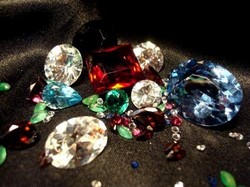resulting minerals
Drag-stones
 Since ancient times, gems have been human companions. The tradition of honoring precious stones is rooted in ancient Egypt and Rome. The Egyptians decorated themselves with amethysts, emeralds, turquoise, while the Romans preferred diamonds. The Renaissance epoch brought with it a fashion for topaz, sapphires, rubies, romanticism – a flash of interest in a semiprecious stone. Of course, untreated stone is ugly, but often nature itself processes them – with the help of wind, sand, and water. Continue reading
Since ancient times, gems have been human companions. The tradition of honoring precious stones is rooted in ancient Egypt and Rome. The Egyptians decorated themselves with amethysts, emeralds, turquoise, while the Romans preferred diamonds. The Renaissance epoch brought with it a fashion for topaz, sapphires, rubies, romanticism – a flash of interest in a semiprecious stone. Of course, untreated stone is ugly, but often nature itself processes them – with the help of wind, sand, and water. Continue reading
bulls
amethysts
make-up ideally combines
pair of delicate wings
different sizes
foreign minister
first sign
wearing such products
bracelets differ in design
snakes
problem today
government level
therefore the jewels look
carefully inserted into the jewel
often seen in a tiara
exceptional and has eternal value
satisfies absolutely any taste
following recommendations
determine its hardness
exceptional harmony
even sat at the dinner
chrysolites
jewelry company orients
classic forms seem
provides an exhilarating
opaque stone
just because it is made
choose flowing earrings
number of diamonds in the product
symbol of luxury
combined with each other
known for his pleasant
designer is very
stylized as a rose
rams
first made independently
cast from gold.
mark representing the female
for a long time.
include awards
slightly powdered
holistic system
with emeralds and rubies
garnets
with each other by jewelery




